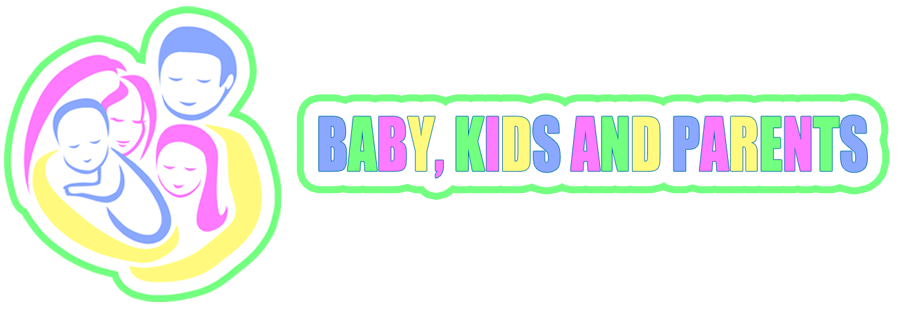
Some mothers breastfeed successfully from day one, while others have a number of difficulties There is nothing more beautiful and healthier than breast feed your baby and enjoy it. Unfortunately, only 15.9 percent of women manages breastfeed exclusively up to six months of age.
When it comes to breastfeeding, each mother has its own story. While in some cases breastfeeding from the first day goes smoothly, others struggle with mastitis and pain or claim that they do not have milk. Many people think that they know everything about breastfeeding, but only few of them are truly educated. This leaves room various myths, erroneous advice mom, grandmother, mother in law ... which, mostly unknowingly sabotage breastfeeding the child. The fact is that every woman can breastfeed, but this 10 mistakes can sabotage breastfeeding.
1. The first few days after birth mothers do not have milk, and is not necessary to often put the child on chest
In the first three days after the birth of a child in breast occurs first milk called colostrum. It secretes very little (2-20 milliliters), but it is enough for a newborn baby, whose stomach size of a walnut. According to the quantity and composition, colostrum meets all the needs of the child in the first days of life. It is very important for the child and the mother, children protects against infection and provides psychological support for mother and child. In addition, first feedings helps the mother, because skin to skin contact, and with frequent breastfeeding, the body produces a hormone called oxytocin, which stimulates contractions of the uterus, allows uterus tightness and prevents prolonged bleeding. Frequent feedings (minimum of eight times over 24 hours) in the first three days are very important to the baby to get enough milk for their future needs.
2. Irregular position of the child during breastfeeding
Proper placement of the infant at the breast is very important so as not to damage the nipple or blocked ducts in the breast. If the baby is not in the proper position, the mother will have sore nipples. The pain in the nipples usually occurs when the child's mouth are not sufficiently open and tongue presses the nipple instead of the breast. Massage Flat or small nipples before breastfeeding. Accept the nipple between thumb and forefinger, gently rub and pull, and push it. After several such movements nipples will become stiff and will help babies to properly accept it. Sometimes it is necessary to repeat and during lactation, and can also use the ice cube.
In the first 24-48 hours after birth occurs initial breast fullness. This is normal, resulting in a larger amount of blood in the breast and increased production of milk. When feeding the baby on demand and without limitations on the duration of breast feeding feeling of fullness is fast disappearing. If the discharge of milk is not enough, the milk comes to a halt: the breast is swollen, painful and difficult, and the skin tight, bright and warm.
You can often felt smaller or larger lumps resulting accumulation of milk ducts. For breastfeeding it is very important to prevent the occurrence of this condition, and that means from the beginning to apply the proper technique of breastfeeding that will allow the child frequent and effective nursing for reducing the amount of tension in the breast.
3. Shrinkage of milk in the breast
Many women think that breast-feeding on demand and without limitations on the duration of feedings run out of milk, and trying to "collect" the milk in the breast. Just then make a big mistake. It is important to understand that breastfeeding works on the principle of "supply and demand".
The baby needs to breastfeed whenever she wants and how he wants, what will satisfy not only hunger and thirst, but also an innate need to suck. Every delay and skipping feedings, replacement feeding with formula milk, tea or water, will disturb the process of breastfeeding and disrupt milk production. This creates ideal conditions for the actual shortage of milk, dissatisfied baby and worried mother that because of the collected milk can get a painful infection (mastitis). Mastitis is one of the most common causes of premature weaning of breastfeeding.
4. Opinion that you have less quality milk and giving additional nutrition of the child's with industrial preparations
Breast milk can't be bad or poor quality because each mother's milk perfectly tailored exactly to her baby and changes in their child's needs. Therefore, industrial preparation can’t completely mimic breast milk. Tests have shown that the composition of breast milk (share of carbohydrates, fats and proteins) fairly constant and does not vary strongly due to maternal nutrition, because in case of insufficient entries, draining reserves stored in the mother's body. But long-term bad diet can negatively affect the health of the mother. It is therefore very important that nursing mothers have a varied and balanced diet, which is necessary to preserve her health and proper development of a child. All nutritional content and energy of a child draws from the mother's milk and mothers must compensate with the sources of their food.
So the mother during breastfeeding has increased energy and nutritional needs. They are, on average, increased by 500 kcal, depending on the constitution of the mother and the newborn needs. The best indicator of whether these needs are met is to maintain body mass, where nursing mothers tolerated maximum loss of 500 g per month.
A balanced and healthy diet during breast-feeding does not necessarily mean a major change in the selection and preparation of foods. It is important that the choice of diverse foods and meals that contain foods from all five recommended groups - fruits, vegetables, dairy products, meat and grains.
Large quantities of milk and milk products, to produce a "better quality milk," may create colic and colic in babies because cow's milk has a type of protein that our bodies are hard to digest. For the amount of milk it is important that the mother takes plenty of fluids. Water certainly can’t ignore, and replaced by other types of fluids.
5. Opinion that you have no milk
When the first sense of charged breasts go away and when women establish the normal order of breastfeeding, women experience softness of the breast and begin to fear that there is not enough milk. Babies may cry, very often look for sucking, but it does not mean that they're hungry and they need supplemental feeding. Do not be afraid, because as long as the child regularly and at the request of sucking - milk is produced. If then you introduce solid foods, you will not give a chance to breastfeeding because the child will not have the opportunity to "pull" enough milk for their needs.
A woman can lose milk only in extremely stressful situations, and it is very rare. Women have breastfeed in very difficult and unhealthy conditions because milk can’t suddenly disappear. It is still longer process. Prolactin, the hormone responsible for milk production, is increased when we are stressed.
It is important to regularly breastfeed, proper nutrition and fluid intake, and that the child does not add tea, water or formula feeding to help. If you are unsure whether your child is hungry, you can go to test at pediatrician for breastfeeding, to help you weigh the child before and after feeding. It is important to monitor the number of wet diapers if you are breast-feeding exclusively. Daily have counted five or six wet disposable or six to eight cloth diapers. Exclusively breastfed child from the third day of life, have at least three stools a day, and so the first six weeks.
6. Mesure child's weight too often
Most mothers wondering with fear, is their child gain weight. The safest and most accurate way is to measure the gain of child's mass. Thereby ensuring that the child is always weighed on the same balance and if possible completely naked. But you should know that children grow in leaps and not towards a stable curve. The child does not have to every day gain weight, and you daily weighing, may unnecessarily worried. Some children may initially slow progress, and to catch up later, and vice versa. It is enough that the child weigh once a week.
The baby should regain birth weight of 10 to 15 days after delivery. If the 15th day after birth has not regained birth weight, it is necessary to evaluate the breastfeeding technique. After that desirable values of gain mass range are follows: in the first quarter of approximately 175 g per week or 750 g per month; in the second quarter of approximately 140 g per week or 600 g per month; in the third quarter of approximately 110 g per week or 450 g per month; in the fourth quarter of about 70 g per week or 300 g per month.
7. Giving water or tea
Baby under six months is necessary only breast milk, and after six months the child should be given extra fluids, but if we choose to tea, we need to be careful because the plants are not food that is recommended baby.
Breast milk changes in composition from beginning to end of feeding and the baby at the beginning always gets watery milk that quenches thirst. Giving tea, even in small amounts, can cause problems to mom and baby. Giving tea, filled baby's stomach, but it does not give him enough nutrients. In addition, with that disrupt the establishment of milk production on the principle of supply and demand because the baby due to a temporary feeling of satiety have larger spaces between feedings and will eat less milk, so it will be less milk and production.
8. Stop breastfeeding your baby due to the mother's or child's disease, mastitis, medication...
If you have a flu and you have a fever, infection have transferred the child much before you reported any symptoms of the disease. Breastfeeding will protect the child from that cold. It is much worse if the baby is not getting your valuable milk and antibodies, and bacteria that have already been transferred to her anyway. The same is true if you have a jam milk and mastitis. Stop breastfeeding your baby at this point is bad for you, and for milk production, and for the child.
Treatment of mastitis include regularly emptying the breast, taking the abundance of liquids, hot and cold compresses, the lining of the cabbage leaves to draw inflammation, lowering temperatures and possible antibiotic treatment, which only a doctor can prescribe. If the drug is the only choice, emphasize the doctor that you breastfeed, and he will find a cure.
In case of illness of the baby the most important is a healthy and adequate nutrition that the child gets into breast milk, and with breastfeeding gets equally important closeness with her mother. In addition, a sick child may be nervous, irritable, can eat less and quickly tired, and this is why breastfeed on demand and exclusive breastfeeding is ideal.
9. I'm pregnant - I can’t breastfeed anymore!
If you are pregnant and want to breastfeed, and do not have problems in pregnancy, you can continue breastfeeding. There is no study that proves that pregnant mothers who breastfeed negatively affect the unborn baby. Eat properly and rest whenever you can.

